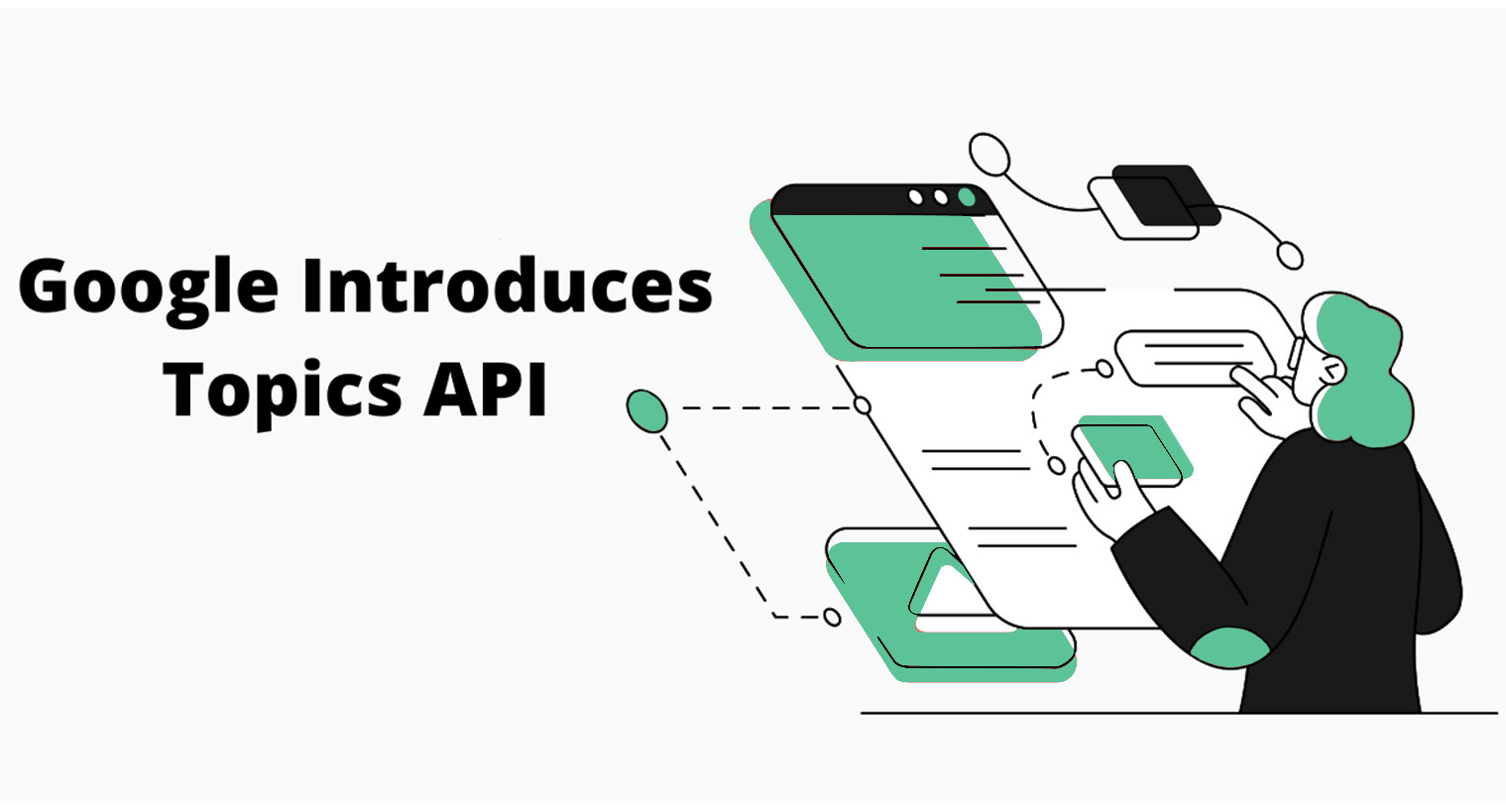Google Topics API – All you Need to Know | 30 Aug, 2022

Along with major tech companies like Apple and Mozilla Firefox, many eyes are also focused on Google, one of the world’s biggest digital advertising players about its plan to replace third-party cookies.
Ever since the initial initiative of Google, Federated Learning of Cohorts (FLoC), was turned down because of widespread community feedback, there has been a long silence.
But, on July 1, 2022, Google announced the replacement of FLoC– “Topics”, Chrome’s Privacy Sandbox proposal.
This new API puts the privacy of the user at the forefront and is based on an interest-based model of advertising that will display ads without tracking the site a user visits.
To determine whether this new API is the best way to strike the right balance between privacy and relevant ads, we must first understand what it is, how it works, and what its benefits and drawbacks are. So, let’s get started.
What is Google Topics?
Google Topics is Google’s proposed alternative to third-party cookies in terms of privacy. It is a browser-based system that assigns a set of interests to a user based on the websites they have visited.
Once these interests are assigned, the Topics API distributes them to participating websites and ad tech companies, which can then use them to display personalized digital ads.
Because all tracking occurs on-device, data is only stored for a maximum of three weeks and no information is shared with any external servers (including its own).
The Topics API has three primary functions to accomplish:
- Maps website and hosts topics of interest. For example, a gym website would be categorized under “Fitness”
- Based on a user’s browsing history, identify the most important topics for them.
- Provide a JavaScript API to help with ad selection based on the user’s interests.
Google is presenting the Topics API as a potential middle ground between ad personalization and user privacy that will shape the post-cookie industry’s future.
However, the company is careful to point out in its explanation that the technology is still in its early stages of development.
Also Read: Brand Safety v/s Brand Suitability – How do they differ?
How does Google Topics Work?
Based on a user’s browsing activity, Topics API determines a handful of topics such as “Health & Lifestyle” or “Yoga & Walking” that represent their top interests for the previous week.
When a user visits a participating site, the API will share up to three topics, one from each of the previous three weeks, with participating sites and their advertising partners, who can use it as one of several possible signals for interest-based advertising.
Topics are only kept for three weeks before being deleted.
For example, if you’re promoting gym memberships or sports equipment and want to reach people who are interested in fitness, you can do so in a relevant and private way.
Google currently uses a list of 300 topics to categorize the websites you visit. When you visit a new website, Google will categorize it according to the best fit.
Your browser is the most important factor in determining what you see when using Google Topics. As you browse the web, your browser will learn about your interests and collect information about the websites you visit.
Google will then deliver your interests to relevant advertisers based on all of the user behavior data.
Can Google Topics Solve the Privacy Issue?
Coming back to the main topic, the reason why everything started in the first place is user privacy. Has Google Topics been successful in solving the privacy issue of users?
Lowers the Chances of Fingerprinting
Launching a limited set of topics (350 in the original proposal, now 300) reduces the possibility of individuals being identified based on their unique topics of interest.
Furthermore, the same user may have different topics assigned to them across different sites, adding a small amount of noise and making it more difficult to reveal their identity.
Provides More Transparency
Previous feedback prompted us to look into new ways to make interest-based advertising in the Privacy Sandbox more transparent and meaningful to users.
Users of Chrome will be able to clearly identify the topics with which they are associated, such as “Pop Music” or “Tourist destinations.”
Continues to Avoid Sensitive Categories
To avoid accidentally introducing sensitive topics, the list of possible topics will be made public and manually curated. This list will be created and maintained in collaboration with the internet ecosystem, and it will be made available to the public so that users and the community can provide feedback.
Some other privacy issues solved by Google:
- The topics displayed to advertisers are completely under the control of the user.
- The topics can be removed from the browser or disabled.
- The site does not need to know who you are in order to show you an advertisement about any topic.
- The specific sites you’ve visited are no longer shared across the internet, as was the case with third-party cookies.
Google Topics – Pros and Cons
Let’s all take a deep breath and consider all the pros & cons for Google Topics.
Pros:-
- Topics are carefully chosen to avoid sensitive categories such as gender or race.
- Since it is powered by the browser, Topics gives you a more recognizable way to see and control how your data is shared.
- By providing websites with your topics of interest, online businesses can continue to serve relevant ads without using covert tracking techniques such as browser fingerprinting.
- Topics will be selected locally on people’s devices in the current version of this proposal, without the involvement of any external servers.
- Topics will only be stored for three weeks before being deleted in order to limit the amount of data associated with an individual at any given time
- Topics will only be stored for three weeks before being deleted in order to limit the amount of data associated with an individual at any given time.
- Chrome will provide user controls from the start, allowing users to see the topics generated based on their browsing history, remove them, or completely opt out of the Privacy Sandbox APIs.
Cons:-
- Topics are chosen based on popular sites visited by users, with each publisher site only representing up to three categories. This makes it difficult for large organizations covering a wide range of topics such as politics, business, sports, and so on to accurately represent the inventory and reader interests of such publishers.
- Topics do not account for consumers’ interests outside of Chrome, so there is no consideration for what the user engages with on connected TV or Safari, for example.
- Without an understanding of the topics people read on their iPhones, marketers have a very incomplete view of consumers’ interests, which makes it tough to reach them with relevant advertising to drive sales.
- Topics also only identify domain-level interests, which creates another limitation for fully understanding what is relevant to the consumer and advertising products or services they are likely to buy.
- Google Topics will only identify topics of interest based on user Chrome activity.
Google Topics Walking Hand in Hand with Contextual Advertising
Does this new privacy-preserving feature that targets an audience based on the context of the page remind you of something similar? Yes, it is our old-fashioned contextual advertising.
For example, if a yoga studio wanted to target people who read workout articles, it could simply place ads on sites like fitness magazines. Because of the context, the advertiser would know people who visit these sites are interested in Yoga and fitness. In short, this is what Topics does for you.
“Interest-based Advertising (IBA) can help advertisers reach potential customers and help fund websites that cannot otherwise easily monetize visits to their site purely through contextual advertising,” according to the most recent Google Topics developer documentation. IBA can also supplement contextual information for the current page to assist the visitor in finding a suitable advertisement.”
Moreover, it is also important for advertisers to understand that Google Topics API is not a stand-alone tool or a substitute for cookies, it needs to
Be paired with first-party data or a contextual signal strategy to supplement Topics API.

BLOGS
Migrate from Oracle to Silverpush: Unlock Advanced Contextual Advertising Solutions
The news that Oracle plans to shut down its advertising business by the end of September has sent shockwaves through the ad industry. Once the most prominent advertising data seller in the market, Oracle is now closing its advertising division. This included Datalogix for offline consumer data, Grapeshot for contextual ...

BLOGS
Cannes 2024 Recap: Silverpush Takes AI Discussions to the French Riviera
As Cannes 2024 concludes, the echoes of vibrant discussions, insightful panels, and significant meetings continue to resonate. This year’s central theme was clear: AI's growing dominance in advertising solutions, optimizing campaigns for business outcomes, and reaching audiences effectively across various screens. With videos becoming increasingly digital, the potential for more addressable ...

BLOGS
UK Programmatic Advertising Spending & Trends in 2024
In 2023, programmatic advertising spending in the UK reached roughly £30.6 billion. The programmatic display advertising market is projected to grow by 12.6% in 2024, bringing it to within just four percentage points of becoming fully programmatic. This highlights how integral this technology has become to the UK ad industry. ...







